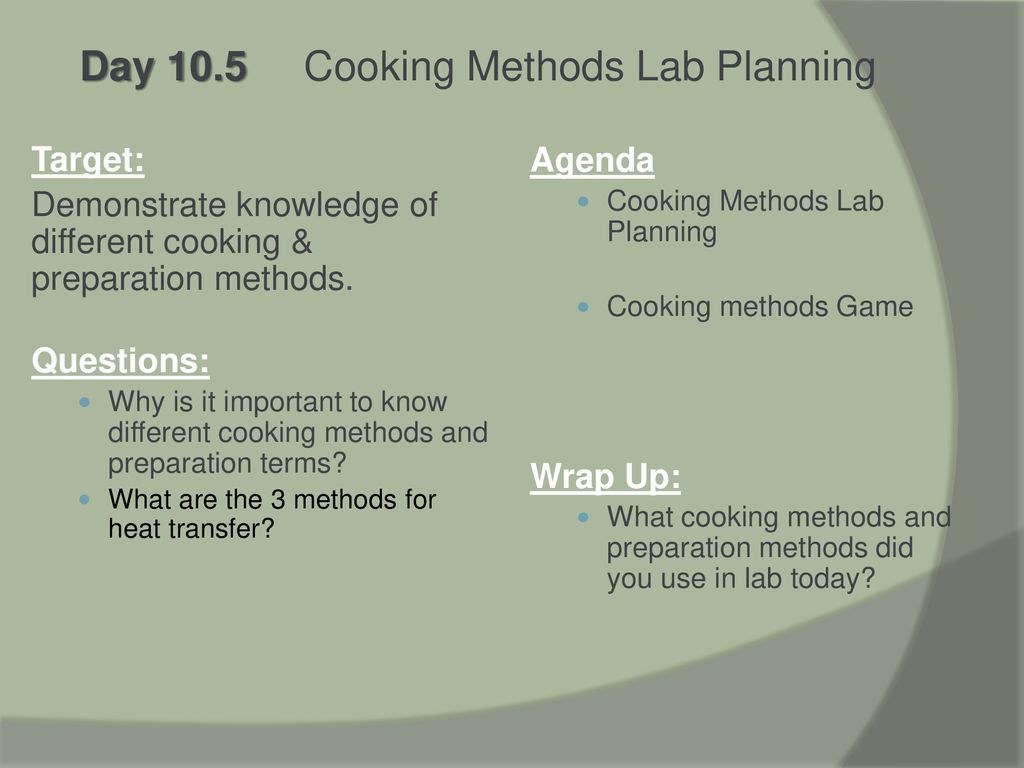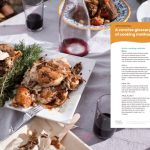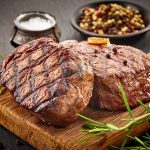Master The Art Of Cooking: Unleash Your Culinary Skills At The Cooking Methods Lab!
Cooking Methods Lab: Exploring the Science of Cooking
Welcome, readers! Today, we delve into the fascinating world of cooking methods lab. In this article, we will explore the various techniques and processes used in the culinary field to transform raw ingredients into delicious dishes. From searing and boiling to baking and grilling, cooking methods lab is an essential aspect of the culinary arts. Join us as we unravel the science behind cooking and discover how these methods enhance the flavors and textures of our favorite meals.
The Basics of Cooking Methods Lab
The cooking methods lab is a scientific approach to cooking that focuses on understanding the chemical and physical changes that occur during the cooking process. By studying these changes, chefs and culinary enthusiasts can improve their cooking techniques and create more flavorful and visually appealing dishes. It involves a combination of theory and hands-on experimentation to explore the effects of different cooking methods on ingredients.
1 Picture Gallery: Master The Art Of Cooking: Unleash Your Culinary Skills At The Cooking Methods Lab!

What is Cooking Methods Lab?
Cooking methods lab is an innovative field that combines culinary arts with scientific principles. It involves conducting controlled experiments and analyzing the results to gain a deeper understanding of the cooking process. By applying scientific methods, chefs and scientists can unlock the secrets behind the perfect roast, the ideal sear, or the most tender stew.
Who Can Benefit from Cooking Methods Lab?
Cooking methods lab is not limited to professional chefs. Anyone with a passion for cooking can benefit from this knowledge. Home cooks, culinary students, and food enthusiasts can all enhance their culinary skills by understanding the science behind cooking. Whether you’re a beginner or an experienced cook, learning about cooking methods lab can take your cooking to the next level.
When Did Cooking Methods Lab Begin?
The concept of cooking methods lab has been around for centuries, with early pioneers like Marie-Antoine Carême and Auguste Escoffier conducting experiments to improve culinary techniques. However, it wasn’t until the late 20th century that cooking methods lab became a formal field of study. Today, it is a rapidly growing discipline that continues to evolve with advancements in technology and culinary research.
Where Can You Find Cooking Methods Lab?

Image Source: slideplayer.com
Cooking methods lab can be found in culinary schools, research institutions, and even home kitchens. Many professional culinary programs incorporate cooking methods lab into their curriculum to provide students with a scientific understanding of cooking. Additionally, there are numerous online resources and workshops available for those who want to explore this field outside of traditional educational settings.
Why is Cooking Methods Lab Important?
Understanding cooking methods lab is essential for several reasons. Firstly, it allows chefs to achieve consistent results in their cooking by understanding the factors that affect taste, texture, and appearance. Secondly, it empowers cooks to experiment with new techniques and ingredients, creating innovative and exciting dishes. Lastly, cooking methods lab enables us to appreciate the science behind our favorite meals and fosters a deeper connection with the food we eat.
How Does Cooking Methods Lab Work?
Cooking methods lab involves a systematic approach to understanding the cooking process. It starts with selecting ingredients and analyzing their properties, such as moisture content, fat content, and protein structure. Next, chefs experiment with different cooking methods, temperatures, and cooking times to observe the changes that occur. Finally, they evaluate the results and make adjustments to optimize their cooking techniques.
The Advantages and Disadvantages of Cooking Methods Lab
Like any field of study, cooking methods lab has its advantages and disadvantages. Let’s explore a few of them:
Advantages of Cooking Methods Lab
1. Enhanced Flavor: Through cooking methods lab, chefs can develop new flavor profiles and enhance the natural taste of ingredients.
2. Improved Texture: Understanding the science behind cooking allows chefs to manipulate textures, resulting in tender meats and perfectly cooked vegetables.
3. Consistency: Cooking methods lab enables chefs to achieve consistent results every time by controlling variables such as temperature and cooking time.
4. Innovation: By exploring different cooking methods, chefs can create unique and innovative dishes that push the boundaries of culinary art.
5. Nutritional Value: Cooking methods lab can help preserve the nutritional value of ingredients by cooking them in ways that retain their vitamins and minerals.
Disadvantages of Cooking Methods Lab
1. Time-consuming: Experimenting with cooking methods can be time-consuming, especially when conducting extensive research and analysis.
2. Cost: Setting up a cooking methods lab with the necessary equipment and ingredients can be expensive.
3. Complexity: The science behind cooking methods lab can be complex, requiring a deep understanding of chemistry, physics, and culinary principles.
4. Limitations: Cooking methods lab may not be applicable to all types of cuisine, as certain traditional dishes rely on specific cooking techniques.
5. Skill Development: Mastering cooking methods lab requires time and practice, making it a more challenging endeavor for beginners.
Frequently Asked Questions (FAQs) about Cooking Methods Lab
1. Can I apply cooking methods lab principles to home cooking?
Yes, absolutely! Cooking methods lab principles can be applied to home cooking to enhance your culinary skills and create more delicious dishes.
2. Do I need special equipment for cooking methods lab?
While specialized equipment can be useful, many cooking methods lab experiments can be conducted using basic kitchen tools and appliances.
3. Are there any safety precautions to consider in cooking methods lab?
Yes, safety is paramount in cooking methods lab. Always follow proper food handling and cooking safety guidelines to ensure a safe and enjoyable experience.
4. Can cooking methods lab help me become a better baker?
Yes, cooking methods lab can greatly improve your baking skills by providing a deeper understanding of ingredient interactions and baking techniques.
5. Where can I learn more about cooking methods lab?
There are various online resources, books, and culinary programs that offer in-depth knowledge and training in cooking methods lab. Do some research to find the best option for your learning style and goals.
Conclusion
In conclusion, cooking methods lab is a fascinating field that combines the art of cooking with scientific principles. By understanding the chemical and physical changes that occur during the cooking process, chefs and culinary enthusiasts can elevate their skills and create unforgettable meals. Whether you’re a home cook or a professional chef, exploring cooking methods lab opens up a world of culinary possibilities. So, why not embark on your own cooking methods lab journey and unlock the secrets of exceptional cooking?
Final Remarks
As with any scientific field, it’s important to approach cooking methods lab with curiosity, patience, and a passion for learning. Experimentation and observation are key to unraveling the mysteries of cooking. Remember, cooking is both an art and a science, and cooking methods lab allows us to appreciate and explore both aspects. So, put on your apron, gather your ingredients, and let the wonders of cooking methods lab inspire you on your culinary adventures!
This post topic: Cooking Techniques


